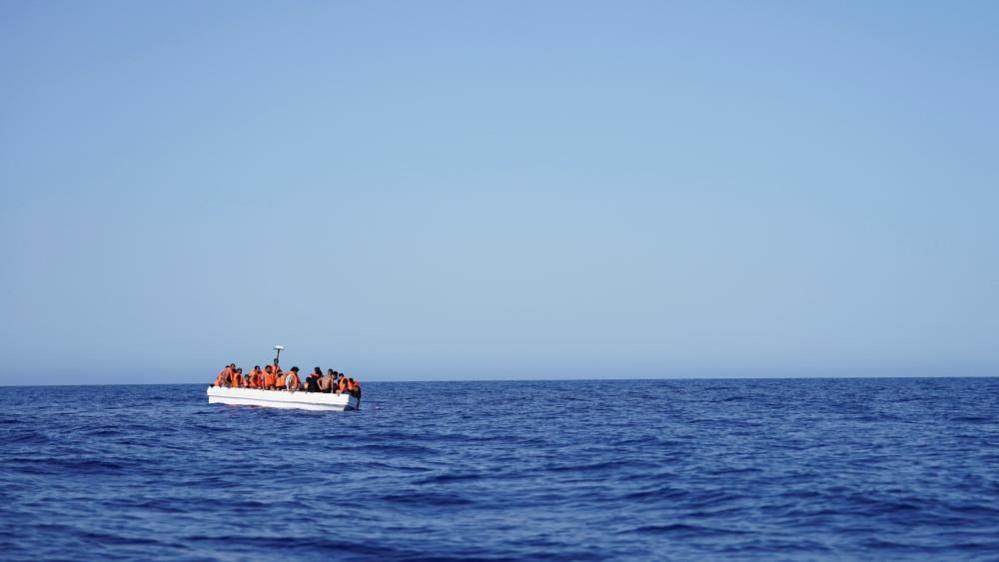Seven migrants rescued after Mediterranean shipwreck leaves 42 presumed dead

Dinghys in the Mediterranean (file pic) are often overcrowded
- Published
Seven men have survived being lost at sea for six days after their dinghy capsized in the Mediterranean, with 42 people presumed dead, the International Organisation for Migration has said.
Citing survivors, the UN agency said the rubber vessel - carrying 47 men and two women - capsized on 3 November, six hours after departing the coastal Libyan town of Zuwara.
The death take the death toll in the Central Mediterranean route past 1,000 this year, according to the latest data from IOM's Missing Migrants Project.
The seven survivors are from Sudan, Nigeria, Cameroon and Somalia, the IOM said in a statement.
They were stranded for six days and found after Libyan authorities carried out a rescue mission near al-Buri Oil Field on Saturday.
"Tragically, 42 individuals remain missing and are presumed dead, including 29 from Sudan, eight from Somalia, three from Cameroon, and two from Nigeria," the IOM said.
Libya remains one of the main departure points for migrants attempting the dangerous sea crossing to Europe.
Hundreds of people die trying to take this route each year, often packed into overcrowded and unseaworthy boats. The IOM said that by the end of October, at least 527 people had died off the Libyan coast since the beginning of 2025 alone.
Between January and October this year, 59,000 people attempted the journey, according to the EU's border agency, Frontex.
The number of people risking the journey has increased as land routes into the European Union have become harder to use.
Last week, a coalition of 13 European search and rescue organisations suspended cooperation with the Libyan coastguard, citing escalating incidents of asylum seekers being violently intercepted at sea and taken to camps rife with torture, rape and forced labour.
They accused Libya's coastguard of being a "decentralised network of armed militias equipped and trained with EU funds".